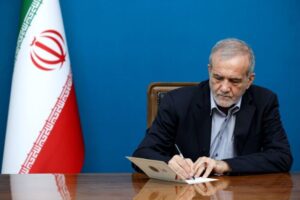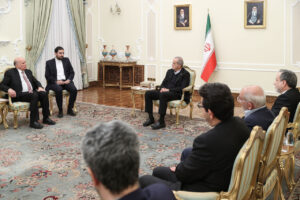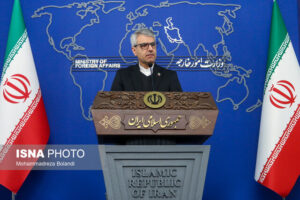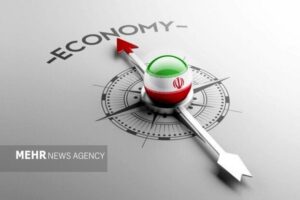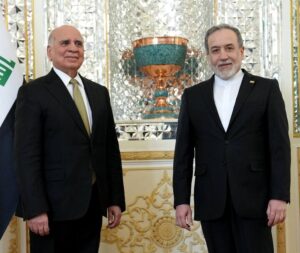According to the Persian version of IRNA, Kazem Gharibabadi, Deputy Foreign Minister for Legal and International Affairs, appeared on IRIB on the evening of Friday, June 14, where he was asked about the continuation of Zionist regime attacks on Iran and Tehran’s legitimate response to these aggressions. He said: “As long as the UN Security Council does not stop the aggression, or the aggressor itself does not cease its hostilities, legitimate self-defense measures under international law are permitted. The aggressor regime’s actions lack legal standing and it cannot claim self-defense. This argument has also been made regarding the Zionist regime’s crimes in Gaza.”
Israel Has Claimed for Two Decades That Iran Seeks Nuclear Weapons
Referring to the fact that the Zionist regime has not signed any of the major international treaties on weapons of mass destruction — including nuclear, chemical, and biological — the Deputy Minister added: “This regime is not a party to any of these treaties and possesses all three types of WMDs, especially nuclear weapons. For over 20 years, it has claimed Iran is pursuing nuclear arms and could produce them at any moment. Yet after 25 years, no evidence has ever been presented to support the existence of such weapons in Iran. These allegations are purely for public deception and to justify its unlawful and aggressive actions.”
Have Iranian Missiles Reached the U.S.?
Gharibabadi emphasized: “A regime possessing WMDs and threatening to use them cannot accuse Iran of pursuing such weapons. Iran has never initiated any aggression in the region and has no history of offensive warfare since the Islamic Revolution. For example, during the imposed war, Saddam’s regime, supported by the same countries now accusing Iran, invaded us. Even today, dozens of military bases surround Iran. Given the vast distance between Iran and the U.S., have Iranian missiles ever reached American soil? Has Iran ever launched missiles or carried out assassinations inside the U.S.? These claims and bases are part of a broader propaganda project. Iran has never been and will never be a threat to others.”
UN Security Council Must Act to Stop Aggression
The Deputy Minister added that many countries, especially Iran’s neighbors, have firmly condemned the recent aggression. Since the attack, Iranian Foreign Minister Dr. Abbas Araghchi has held numerous phone calls with counterparts and heads of international organizations, including the UN Secretary-General and the OIC Secretary-General, to explain the situation and call for their legal obligations to be upheld under international law and the UN Charter. Aggression and attack are prohibited under the Charter, and not only must they be condemned, but the UN Security Council and its members must act to stop them.
Ambassadors of Certain European States Will Be Summoned
Gharibabadi continued: “By this evening, the Iranian Foreign Minister had spoken to more than 30 counterparts and heads of international bodies. Even some European countries and the EU representative have emphasized that escalation and aggression must cease and be replaced with diplomacy. However, two or three European states adopted improper stances, and Iran will lodge formal complaints both through diplomatic calls and by summoning their ambassadors tomorrow. The issue is being monitored closely.”
He noted that Iran has also been actively engaged in international organizations. “For instance, following contact with the UN Secretary-General, he issued a statement condemning the attack. At Iran’s request and with support from members like Russia, the UN Security Council held an emergency meeting yesterday.”
Using the IAEA as Leverage Against Israel
Gharibabadi added that a wide array of UN Security Council members, including non-permanent ones and permanent members such as Russia and China, condemned the attack and called for its immediate halt. Following this, the Iranian Foreign Minister sent a letter to the IAEA Director General, condemning the aggression and requesting an extraordinary Board of Governors meeting to address the matter. The Director General issued a statement, and at Russia’s request, an emergency meeting is scheduled for Monday. The IAEA is thus being leveraged to pressure the Israeli regime.
Iran Issue to Be Raised at Upcoming OIC Foreign Ministers Meeting
He noted that Dr. Araghchi also contacted the OIC Secretary-General, who strongly condemned the attack in a statement. The issue will be discussed at the upcoming OIC Foreign Ministers’ meeting in Istanbul next Saturday, where a joint statement or resolution is expected. Islamic countries will collectively condemn the aggression.
Gharibabadi also pointed out that Iran is a member of the Shanghai Cooperation Organization. Its Secretary-General sent a message yesterday, and member states issued a strong condemnation today. These diplomatic efforts continue — for example, Iranian diplomats in New York are in talks with the Non-Aligned Movement, BRICS in Brazil, and the Group of Friends of the UN Charter to issue similar statements.
Iraq Must Prevent Use of Its Airspace for Aggression
The Deputy Minister stressed the importance of officially registering this attack as an act of aggression to legally justify any potential retaliatory measures. He added that some attacks originated from Iraqi territory. Dr. Araghchi immediately contacted his Iraqi counterpart, Fuad Hussein. Although Iraq lacks full territorial control, Iran views it as a sovereign state responsible for preventing such violations. Iran asked that Iraq at least submit a letter of protest to the UN Security Council, which it did yesterday.
Iran Will Not Forget Countries Like India That Supported It
Gharibabadi continued: “Dr. Araghchi also spoke with the Indian Foreign Minister. As founding members of the Non-Aligned Movement, Iran and India share views on many international issues. Iran will not forget the support of countries like India in such times. Conversely, countries siding with the aggressor or trying to balance between both sides will be noted by Iran in future policy considerations.”
No Legal Basis for Referring Iran’s Nuclear Case to the UN Security Council
He said there is no legal basis for referring Iran’s nuclear case to the UN Security Council. The issues raised in the resolution relate to two topics from 25 years ago, and there is no ambiguity in Iran’s current nuclear activities. Of the four outstanding issues, two have already been resolved. These are not issues that warrant consideration under international peace and security to justify referral or resolution. Nonetheless, a process of politicization has been pursued through majority support in the IAEA Board to pave the way for potential snapback sanctions if talks break down. However, even the proponents understand that activating the snapback mechanism has costs for them as well.
Grossi’s Recent Report Is Entirely Political
Gharibabadi said that Iran has advised Western countries that dialogue and negotiation, not political pressure through international institutions, is the best path. The recent actions amount to case-building. According to Article XII, Section C of the IAEA Statute, “non-compliance” must be established by on-site inspectors and reported to the Director General, who then submits it to the Board. Only if the Board approves can the issue be referred to the Security Council. None of this procedure was followed in Grossi’s latest report, which is entirely political. Iran has issued serious warnings in this regard. The head of the Atomic Energy Organization of Iran has already rejected the legal basis of the recent resolution. Iran is not in violation — it has always honored its obligations.
No Discussion on Activating Snapback
The Deputy Minister added that while there is currently no talk of triggering the snapback mechanism, Iran had previously submitted letters stating that if such a mechanism were activated, Iran would respond by withdrawing from the NPT. This has long been communicated to the UN, European states, and other JCPOA members.
Iran Will Decide Based on Its National Interests
He concluded by stressing that the recent Israeli attack on Iranian nuclear facilities is a clear violation of international law, UN Security Council resolutions, and IAEA General Conference and Board of Governors decisions. A similar case occurred when Israel attacked Iraq’s research reactor, resulting in condemnation by both the IAEA and UN Security Council. Iran has begun retaliatory actions, some of which have already been communicated to the IAEA. These include enhanced protection measures for nuclear materials and equipment.
However, due to the aggressive nature of the Israeli regime, some protective measures will not be disclosed to the IAEA. The Islamic Republic of Iran will make decisions based on national interests and priorities. Although the IAEA may request information on attacked facilities, Iran will no longer cooperate with the Agency in the same manner. It is meaningless for the Agency to remain silent in the face of attacks on peaceful facilities while maintaining routine inspector access. These matters are currently under review. It must be emphasized that the issues at hand go beyond IAEA relations; other actions are also underway.

